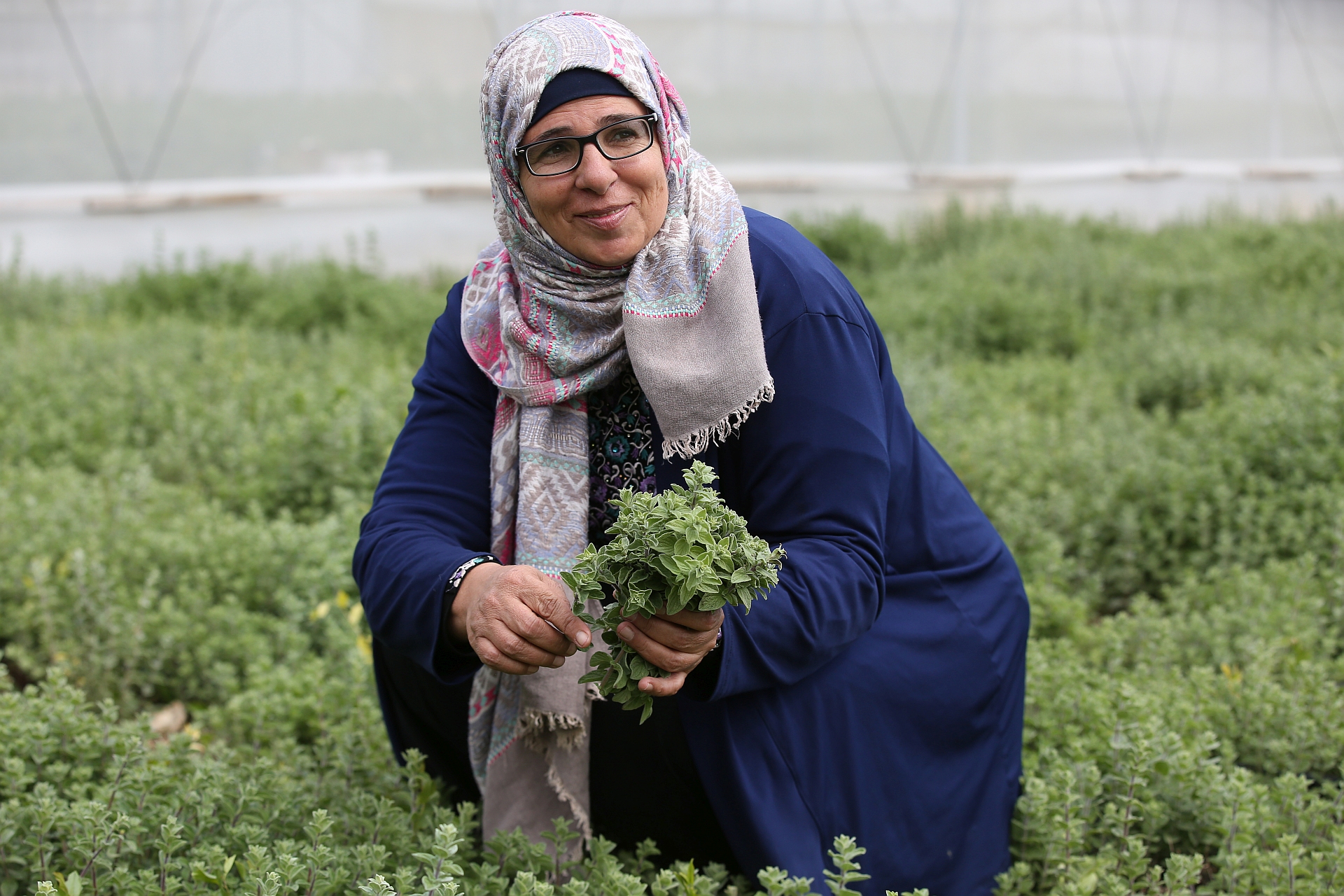
Anchors of Hope: Women driving recovery and resilience - Gaza
Cultivating Life in Crisis – Samar’s Story from Gaza
11/06/2025
Gaza – May 2025
Gaza has long faced overlapping layers of crisis, but the conflict that escalated in late 2023 brought unprecedented devastation. More than a million people were displaced, entire neighbourhoods were reduced to rubble and basic necessities like water, electricity, and food became scarce. Agriculture already constrained by land access and import restrictions, all but collapsed. For women, the consequences have been especially severe. With homes destroyed and livelihoods lost, many have assumed new roles as providers, caretakers and first responders, navigating daily survival while anchoring their communities in the face of loss.
Among them is Samar Ahmed Abu Safia, a 29-year-old agricultural expert who once led initiatives at Gaza’s Ministry of Agriculture to empower women farmers. When the war began, Samar’s work and her home were shattered. Forced to live in a tent alongside thousands of others, she became one of the many displaced.
Samar holds a degree in Agricultural and Environmental Sciences and a master’s in environmental studies. With over seven years of experience in Gaza’s agriculture sector, she had become a trusted figure in the field. She represented the Ministry in FAO’s Water Banking and Adaptation to Climate Change Project and was trained by FAO as a Farmer Field School (FFS) facilitator, leading the first women’s FFS to use treated wastewater for irrigation an important milestone for Gaza’s constrained agriculture sector.
When fieldwork was suspended, Samar redirected her efforts toward humanitarian response by volunteering in aid distribution and writing articles to raise awareness of Gaza’s growing food crisis. After being displaced nine times, Samar's understanding of suffering deepened, but so did her resolve.
With no tools, no water and only sand, she began planting vegetables beside tents. Her first garden was destroyed when fighting reached the camp, and she started again. There, she reunited with women farmers she had previously trained and together they began cultivating spinach, arugula and other vegetables growing food in some of the most difficult conditions.
The effort soon became known as “Green Camps,” a grassroots movement that promotes urban agriculture and community resilience amid displacement. The gardens not only provided fresh food, but also helped restore a sense of purpose and connection. Children who once avoided leafy greens became active caretakers of the crops, queuing for hours to collect water for irrigation.
“We didn’t just grow vegetables, we grew dignity and purpose,” Samar said. “In a place where everything was taken from us, we still found a way to give something back.”
“Amid destruction and displacement, Samar and the women of Gaza embody the power of local knowledge, dignity, and determination to rebuild—even with limited yet well-targeted support that FAO is proud to provide,” said Azzam Saleh, FAO’s Emergency and Rehabilitation Coordinator and Head of Programme in Palestine.
Through war, repeated displacement and deep uncertainty, Samar continues to cultivate life. Her story is a reminder that even in the most shattered places, rural women remain central to the survival and healing of their communities.
